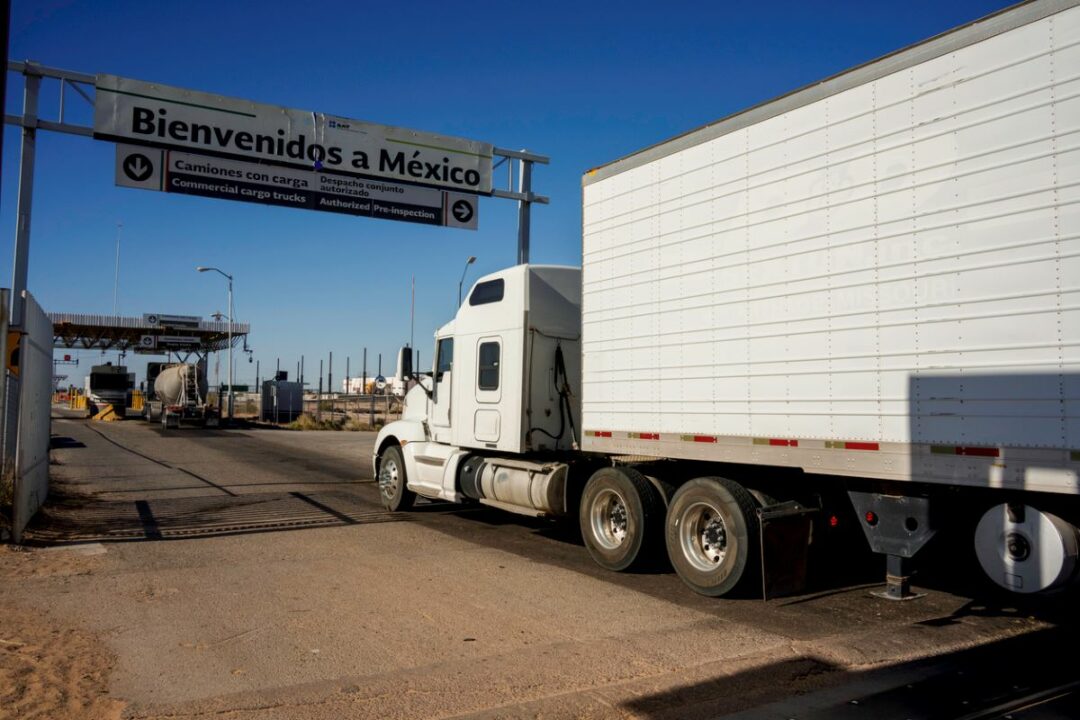
Visit Our Sponsors |
|
|
|
|
|
|
|
|
|
|
|
|
|
|
|
|
|
|
|
|
|
|
|
|
|
|
|
|
|
|
|
|
|
|
|
|
|
|
|
|
|
|
|
|
|
|
|
|
|
|
|
|
|
|
|
|

Photo: iStock/grandriver
Mexico could find itself cut out entirely from the next trade deal with the U.S. and Canada, over concerns that it is being used as a backdoor for Chinese manufacturers looking to get around tariffs on Chinese imports.
The three North American countries signed onto the U.S.-Mexico-Canada Agreement (USMCA) in 2018, as a replacement for the 24-year-old North American Free Trade Agreement. The USMCA — which took effect in 2020 — is up for a review in 2026, when all three countries will decide on whether to continue with the existing deal, or draft new terms. Included in the current USMCA agreement is a clause that allows foreign manufacturers with facilities in Mexico or Canada to export their goods to the U.S. without paying tariffs, if they can prove that they sourced their materials locally. That's opened the door for Chinese companies to set up manufacturing hubs in Mexico, and then export certain products into the U.S. duty-free.
On November 13, Ontario premier Doug Ford proposed a new bilateral trade agreement between the U.S. and Canada to replace the USMCA and cut Mexico out altogether, claiming that Mexico has allowed itself to become a "backdoor" into U.S. markets for Chinese manufacturers looking to avoid recent tariffs on imported Chinese electric vehicles, steel and aluminum. In a press conference the next day, Canada's deputy prime minister Chrystia Freeland noted that, while the U.S. and Canada are "perfectly aligned" on their approach to addressing trade with China, "the same cannot be said of Mexico." Former Mexican vice minister for trade Juan Carlos Baker — who participated in the original USMCA negotiations — denied that assertion in a statement to CBC News, saying the idea Mexico has become a springboard for Chinese products is "false," and claiming that Mexico has operated in good faith within the terms agreed to in the USMCA.
Leaders with both the U.S. and Canada have frequently raised alarms about China undercutting domestic markets with low-priced, government subsidized goods, with Freeland calling it a "threat to key Canadian industrial sectors."
In 2018, then-President Donald Trump enacted 25% tariffs on imported Chinese aluminum, solar panels and washing machines bound for the U.S. Joe Biden kept those in place during his presidency, before imposing additional tariffs on Chinese EVs and green technology, which were matched by Canada months later. In early 2024, Mexico enacted tariffs of its own against countries it does not have free trade agreements with — including China — for 392 products, impacting roughly 90% of Chinese exports into the country.
Trump has also vowed to hit China with blanket 60-100% tariffs on all imports into the U.S. for his next presidential term starting in 2025.
RELATED CONTENT
RELATED VIDEOS
Timely, incisive articles delivered directly to your inbox.


